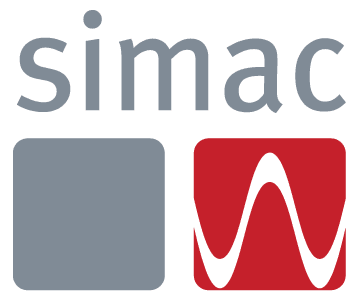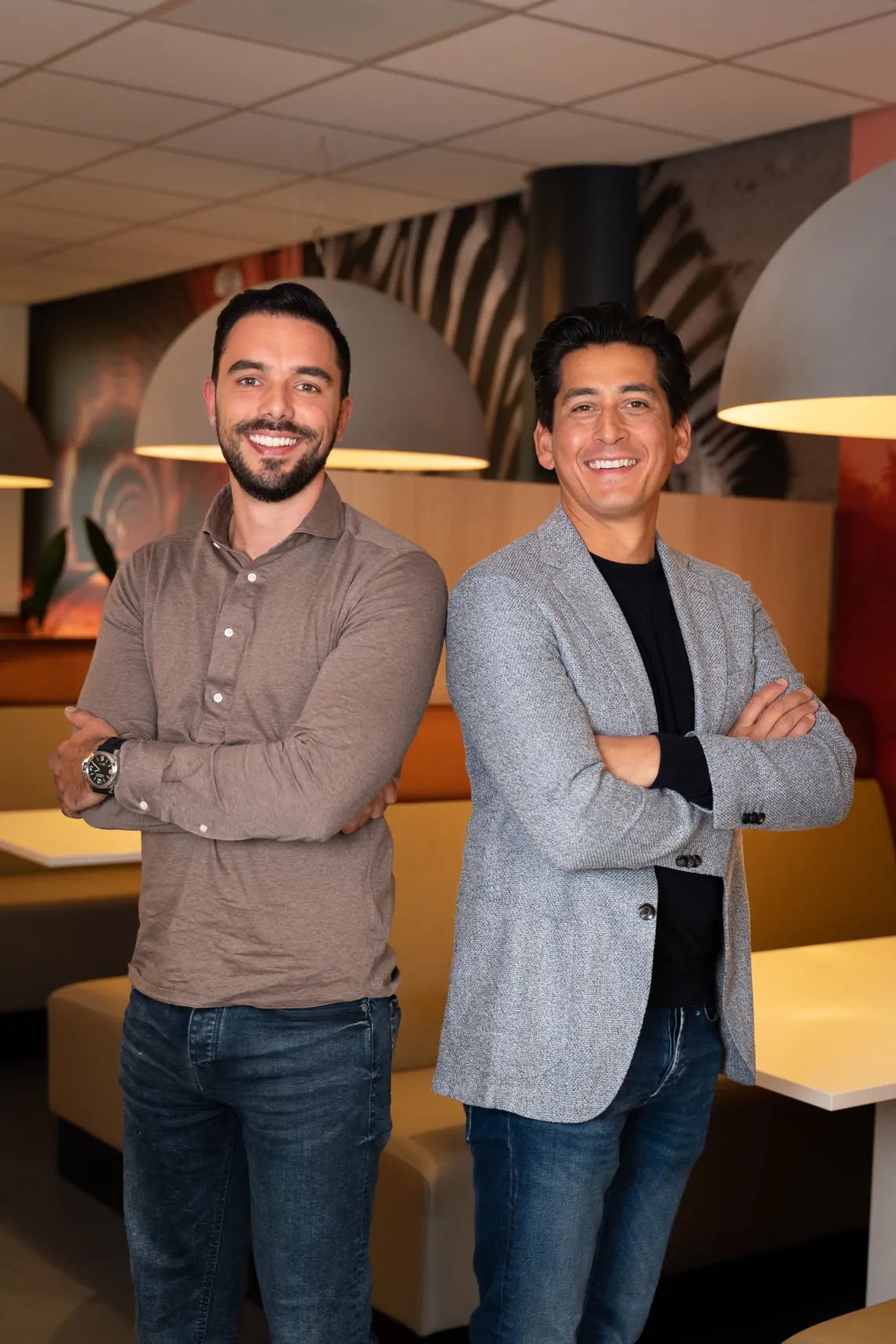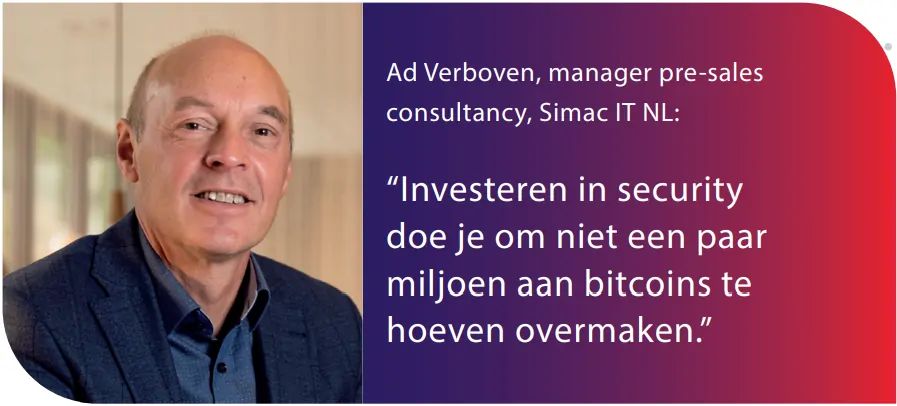Margins in retail are often small. As a result, retailers are tempted to postpone investment in modern network technology. Simac and Cisco warn of the consequences of this. “It has become impossible to manually manage, monitor and solve any problems with the network.”
The collaboration between Simac and Cisco has changed significantly over the past thirty years. Initially, Simac was the system integrator that combined components from different brands into one network. Cisco was one of the many brand manufacturers. “Nowadays, those components are almost always derived from a single platform like Cisco Meraki due to management”, says Ad Verboven, manager of pre-sales consultancy at Simac IT NL.
“The reason is that parties like Cisco put a lot of intelligence into their platform, which simplifies management. That platform can now detect and solve problems itself. We are increasingly moving towards a self-managing and self-healing network.”Ad Verboven- manager pre-sales consultancy, Simac IT NL
Microservices
Management may become easier, but at the same time, expectations are higher than ever. "We need to do more with less. Save costs and innovate at the same time," says Pim Roelofsen, country lead for Cisco Meraki. He is supported by colleague David Mensing, team lead commercial midmarket at Cisco. "New challenges are arising. The applications of retailers that are used by consumers and employees today consist of a whole lot of microservices that run everywhere. Part of it may run in the public clouds of Microsoft or Amazon, another part may be in the private cloud of Simac. In the past, such an app was used only in the store, but now customers use it at home, at work, in the pub or on the street. The network has to facilitate and secure all of that."
Retail Blog | Maartje van Schagen
"In the store we really see the result of our work."
Read the blogThis requires transparency and insight into the application's performance. If a customer has chosen a pair of shoes and wants to check out, the app's payment module naturally has to work. It helps if a platform quickly and autonomously detects, localizes and possibly resolves disruptions.
“Right before Christmas, millions of transactions per second go over the network. It is then impossible to manually monitor and manage the performance of all components. For these kinds of things, we need an intelligent platform.”Ad Verboven- manager pre-sales consultancy, Simac IT NL
Source of innovation
For network management, Simac must be able to rely on a reliable technology partner. “We provide 24/7 services to retailers. If we encounter a problem that we cannot solve ourselves, we know that it will be solved by Cisco. They also have a 24/7 service set up for this. In addition, Cisco makes it possible for us to develop our own management tools. So we are partners on many fronts where we take the initiative towards customers, but can fall back on Cisco if necessary”, says Verboven.
“We are each other's extension. When we have developed something new, we share that with Simac. And Simac shares customer feedback with us. We also often work together towards customers, so we can offer a suitable solution for every retailer.”Pim Roelofsen- countrylead Cisco Meraki, Cisco
For Simac, Cisco is an important source of innovation, Verboven explains. “In countries like the United States, Australia and the United Kingdom, a lot of innovation is taking place that would remain hidden to us without cooperation with Cisco. Cisco also feeds us with statistical information that helps us to complete the business case of customers. Of course we want to provide ICT services, but in the end it's about our customers reducing costs and increasing revenue,” Verboven explains.
Couple million BitCoins
In addition to cost savings and increased revenue, Roelofsen mentions a third point of attention: risk reduction. "This is not just about Cisco's technology and Simac's services, but also about the retailer's daily practice. In every conversation, security is a prerequisite." Verboven adds: "Security is an IT issue for up to 50 percent. The other half is about other matters such as human behavior. The Cisco platform helps to detect strange behavior. If a user now logs in with his account from the Netherlands and half an hour later from China, something is wrong. The platform then blocks the account so that we can nip an attack in the bud." An important concept in this respect is micro-segmentation, which means that the network is divided into small segments. An attack on the network is therefore limited to that one segment. And the smaller the segment, the smaller the impact. However, many retailers have an outdated network without any segmentation. If a hacker manages to find an entrance somewhere, he immediately gets access to all stores.
“It remains difficult to convince retailers that they need to invest in security. Think of it as an insurance premium. With an investment in security, you prevent having to transfer a couple of million in bitcoins after a ransomware attack.”Ad Verboven- manager pre-sales consultancy, Simac IT NL
Software is decisive
Retail is digitizing at an increasingly high pace. This places demands on the network in stores, but with the current technology, it will become less quickly outdated. After all, it is not the hardware, but the software that determines the functionality and safety. “From the cloud we can remotely add functionality and improve safety. With Cisco Meraki retailers essentially purchase a subscription to innovation”, Roelofsen explains. “Of course we don't know exactly what the future will look like, but we do know that we can move with retailers. This way we ensure that they not only have a network that is up-to-date today, but also one that is still up-to-date in five or ten years’ time.”}
Cisco Meraki
In no time, a scalable, secure and fast network. Read more about what you really need to know about Cisco Meraki.
Read moreVerboven recalls a recent conversation with the first food retailer to implement Cisco Meraki. “They wanted to know what steps they needed to take to make their network future-proof. We looked into it, but soon concluded that nothing needs to be changed with the infrastructure.”
Division in retail
Many retailers look at the network with the same view as gas, water and light. It just always has to work. Mensing calls on them to also keep an eye on the opportunities the network offers with a view to innovation. “Think of smart cameras to gain more insight into customer behavior. We still have too many conversations about speeds and feeds with traditional retailers instead of innovation.”
Roelofsen has one last message. 'Look at what you want to achieve as a retailer and investigate whether you are ready in terms of technology.' Verboven adds: 'Look at which platform can best support you. And dare to invest to secure your future.'










